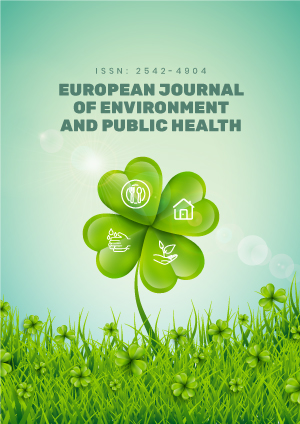Abstract
Objectives: The COVID-19 outbreak was classified as a global epidemic after it emerged in the first quarter of 2020 and the virus spread rapidly after only three months. The quarantines implemented during the COVID-19 period, the deterioration of economic income, and the uncertain situation about the future have affected the changes in physical inactivity, mood changes, sleep quality, lifestyle, and eating habits. Our study aimed to investigate the changes in individuals’ mood, sleep quality, lifestyle, and eating habits during the COVID-19 pandemic period.
Patients and Methods: COVID-19 phobia scale (C19P-S) and coronavirus anxiety scale (CAS) were used to assess the emotional state of individuals. Pittsburgh sleep quality index was used to assess sleep quality. The data required for the research were collected with an online questionnaire. The study was carried out on individuals over 18 years of age between November 2020 and January 2021. Changes in mood, sleep quality and lifestyle with eating habits of individuals during the COVID-19. The data obtained from the studies were analyzed with appropriate statistical methods using the SPSS 22.0 program.
Results: A total of 6,609 individuals between the ages of 18-70 participated in the study, and 69.8% of the participants were female. Sleep quality and the mean score obtained from the C19P-S in female individuals (50.4±10.63) were found to be significantly higher than in male individuals (46.9±9.94) (p<0.001). Sleep quality showed a positive and significant relationship with CAS and C19P-S, respectively (r=0.190, r=224) (p<0.001). Before the COVID-19 period, the individuals consumed the highest rate of fruit (68.8%), tea, herbal teas (48.4%), vegetables (50.8%), and milk and yogurt (48.4%), while after the pandemic the highest rate of industrial packaged bakery products (41.0%), sugar or sweeteners (36.2%), processed meat products (34.7%), and sugar-sweetened soft drinks (30.3%) were consumed.
Conclusions: The COVID-19 may cause changes in individuals’ mood, sleep quality, lifestyle, and eating habits. This is the first study to evaluate these factors together in the Turkish population. We believe that complications related to COVID-19 may have a negative impact on public health in the long term. In the future, we recommend that governments develop policies to improve public health regarding adequate and balanced nutrition, physical activity, and mood management.
Keywords
License
This is an open access article distributed under the Creative Commons Attribution License which permits unrestricted use, distribution, and reproduction in any medium, provided the original work is properly cited.
Article Type: Research Article
EUR J ENV PUBLIC HLT, Volume 7, Issue 2, 2023, Article No: em0129
https://doi.org/10.29333/ejeph/12604
Publication date: 01 Apr 2023
Online publication date: 06 Nov 2022
Article Views: 2242
Article Downloads: 1737
Open Access References How to cite this article
 Full Text (PDF)
Full Text (PDF)